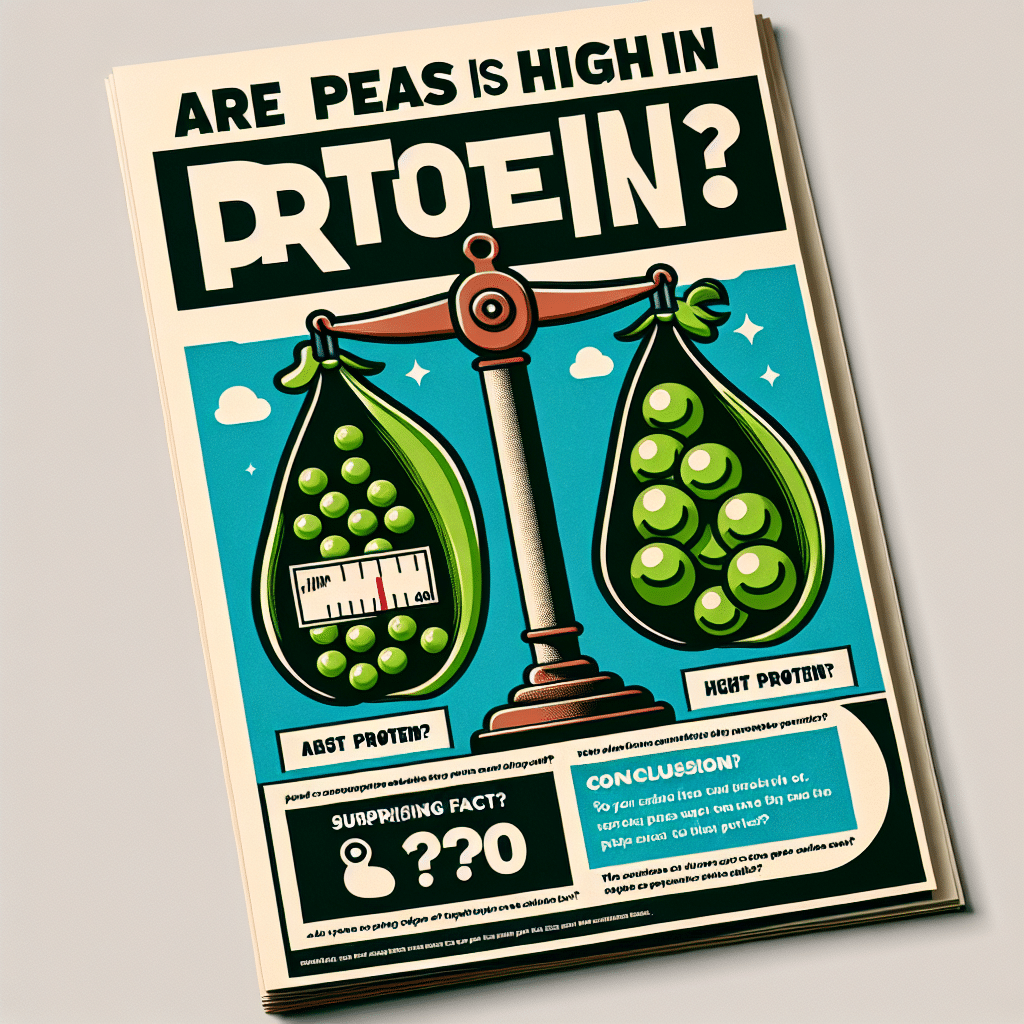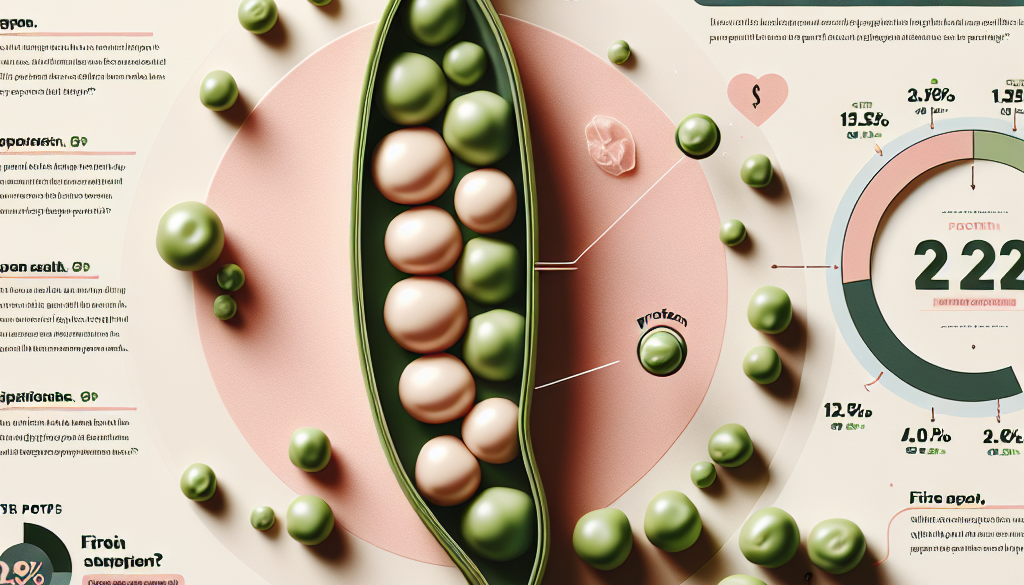Are Peas High in Protein: The Surprising Answer
-
Table of Contents
Are Peas High in Protein: The Surprising Answer

When it comes to protein-rich foods, most people immediately think of meat, eggs, and dairy products. However, there is a growing interest in plant-based protein sources, and one that often comes up in discussions is peas. Peas are a versatile and nutritious vegetable, but are they really high in protein? In this article, we will explore the protein content of peas and uncover the surprising answer.
The Protein Content of Peas
Peas are a type of legume that belongs to the Fabaceae family. They are commonly consumed as a vegetable and are a staple in many cuisines around the world. Peas are known for their vibrant green color and sweet taste, but they also offer a range of health benefits.
When it comes to protein content, peas are indeed a good source. According to the United States Department of Agriculture (USDA), one cup of cooked peas contains approximately 8 grams of protein. This may not seem like a lot compared to meat or dairy products, but it is significant for a plant-based food.
Furthermore, peas are considered a complete protein, meaning they contain all nine essential amino acids that the body needs for optimal health. This makes them an excellent choice for vegetarians and vegans who may struggle to meet their protein requirements without consuming animal products.
The Benefits of Pea Protein
Pea protein, which is derived from yellow peas, has gained popularity in recent years as a plant-based alternative to traditional protein sources. It offers several benefits that make it an attractive option for those looking to increase their protein intake:
- High Digestibility: Pea protein is highly digestible, meaning that the body can efficiently absorb and utilize the protein it contains. This is important for muscle growth and repair, as well as overall health and well-being.
- Rich in Branched-Chain Amino Acids (BCAAs): Pea protein is particularly high in BCAAs, which are essential for muscle protein synthesis and recovery. BCAAs have been shown to enhance athletic performance and support muscle growth.
- Low Allergenicity: Pea protein is hypoallergenic and does not contain common allergens such as gluten, dairy, and soy. This makes it suitable for individuals with food sensitivities or allergies.
- Sustainable and Environmentally Friendly: Peas are a nitrogen-fixing crop, which means they can help improve soil health and reduce the need for synthetic fertilizers. Additionally, growing peas requires less water and land compared to animal agriculture, making it a more sustainable choice.
Pea Protein in the Food Industry
Due to its numerous benefits, pea protein has found its way into a wide range of food products. It is commonly used as an ingredient in plant-based meat alternatives, protein bars, shakes, and powders. Pea protein isolate, which is a highly concentrated form of pea protein, is often used to boost the protein content of these products.
One of the reasons pea protein has become popular in the food industry is its neutral taste and smooth texture. Unlike some other plant-based proteins, such as soy or hemp, pea protein does not have a strong flavor or gritty texture. This makes it more versatile and appealing to a wider range of consumers.
The Role of Pea Protein in a Balanced Diet
While pea protein offers many benefits, it is important to remember that it should be part of a balanced diet. Protein is just one of the essential nutrients our bodies need, and it is important to consume a variety of foods to ensure we meet all our nutritional needs.
Peas can be a valuable addition to a well-rounded diet, providing not only protein but also fiber, vitamins, and minerals. They can be enjoyed in various forms, including fresh, frozen, or canned. Pea protein powder is also a convenient option for those who want to increase their protein intake or supplement their diet.
Summary
Peas are indeed high in protein, with one cup of cooked peas containing approximately 8 grams of protein. They are also a complete protein, providing all nine essential amino acids. Pea protein, derived from yellow peas, offers several benefits such as high digestibility, rich in BCAAs, low allergenicity, and sustainability. It has become a popular ingredient in the food industry, particularly in plant-based products. However, it is important to consume a variety of foods to ensure a balanced diet.
About ETprotein
ETprotein, a reputable protein Chinese factory manufacturer and supplier, is renowned for producing, stocking, exporting, and delivering the highest quality organic bulk vegan protein and plant proteins. They include Organic rice protein, clear rice protein, pea protein, clear pea protein, pumpkin seed protein, sunflower seed protein, mung bean protein, etc. Our offerings, characterized by a neutral taste, non-GMO, allergen-free attributes, cater to a diverse range of industries. We serve nutraceutical, pharmaceutical, cosmeceutical, veterinary, as well as food and beverage finished product distributors, traders, and manufacturers across Europe, USA, Canada, Australia, Thailand, Japan, Korea, Brazil, and Chile, among others.
Our specialization includes exporting and delivering tailor-made protein powder and finished nutritional supplements. Our extensive product range covers sectors like Food and Beverage, Sports Nutrition, Weight Management, Dietary Supplements, Health and Wellness Products, and Infant Formula, ensuring comprehensive solutions to meet all your protein needs.
As a trusted company by leading global food and beverage brands and Fortune 500 companies, ETprotein reinforces China’s reputation in the global arena. For more information or to sample our products, please contact us and email sales(at)ETprotein.com today.












